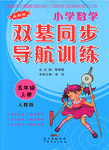题目内容
When was the last time you were late and expected someone to understand? How about the time you left your dishes on the table for someone else to clean up? Or perhaps you left the lid on the peanut butter jar loose, and the person after you opened the jar to find it dry and not fresh.
Often, we are eager to ignore our own faults. But we have higher standards when it comes to our expectations of someone else who has the same expectations. We need to as equally understand the weaknesses of others and excuse them just as we excuse ourselves.
Two of my strengths are punctuality(准时) and organization. I like to meet deadlines when they are due and keep the space around my computer neat and orderly. But sometimes things happen, and I slip from being perfect. When this happens, I show myself mercy and lower the standard for myself. However, if someone else makes a mess around my computer, I might not show them as much mercy as I show myself. If it can happen to me, then I should be willing to realize that it can happen to someone else as well.
I am not suggesting that we should not work on improving our faults, or that it should be right to be late or leave a mess behind us. Although we should always be working towards self-improvement, we shouldn’t have a double standard that says we are excused from our own mistakes but we cannot excuse someone else. If we are not 100-percent perfect, we shouldn’t expect others to be.
Mercy shows an understanding heart. If we are blind to our own faults, we will not be very merciful towards others. Showing a little mercy goes a long way when life’s little mistakes take place. When the tables are turned, showing mercy towards someone’s shortcomings could cause us to receive some in return.
1.From the first paragraph we can learn that________________.
A. we all make a mess sometimes
B. we all need private space
C. we should accept others’ help with gratitude
D. we should not open the lid on the peanut butter jar
2.How does the author develop the third paragraph?
A. By raising questions. B. By giving examples.
C. By analyzing opinions. D. By showing research findings
3.The underlined part, “When the tables are turned” in the last paragraph, can be best replaced by____________.
A. “When good luck comes” B. “When benefits increase”
C. “When our mistakes happen” D. “When the situation is changed”
4.What would be the best title for this passage?
A. Changing Bad Daily Habits B. Excusing Our Own Faults
C. Being Merciful Toward Others D. Working Toward Self-improvement
1.A
2.B
3.D
4.C
【解析】
试题分析 本文是记叙文,每个人都有犯错的时候,要宽恕才能同样的得到回报,互相理解。
1.A推断题。第一段列举很多种状况,每个人都有一团糟的。故选A项。
2.B 细节题。根据第三段When this happens, I show myself mercy and lower the standard for myself. However, if someone else makes a mess around my computer, I might not show them as much mercy as I show myself。作者学会关于当最后期限到时,举例说明自己是如何对待的。故选 B项。
3.D 推断题。Showing a little mercy goes a long way when life’s little mistakes take place,当犯错时表现出一些仁慈来,故下文应是当情况发生改变时,对别人的缺点的宽恕会使我们得到回报。故选 D项。
4.C 主旨大意。文章主要表达我们应该谅解别人的错误毛病。故选 C项。
考点 日常生活类阅读

 双基同步导航训练系列答案
双基同步导航训练系列答案 黄冈小状元同步计算天天练系列答案
黄冈小状元同步计算天天练系列答案His first successful fight was for the equal rights of black people in South Africa. Then, as the first black president, he fought to unite the country and organize the government. Now Nelson Mandela has set his sights on a new enemy, AIDS.
On March 19 the 82-year-old, former president, hosted his second AIDS-awareness concert. He warned that 25 million people in Africa were already infected with the fatal disease.
Mandela was born in a small village in South Africa in 1918. He was adopted by the chief of his tribe and could have been a chief himself and lived a happy country life.
But he refused to be a chief when his people lived under racial discrimination(歧视). He decided to fight for equal rights for all the people in South Africa. Before 1990, under the country’s Racial Segregation Law, colored and white people lived separately. Black people were treated unfairly even when taking a bus. Blacks had to stand at the back of the bus to make room for white people even when there were only a few of them on board.
For his opposition to the system, Mandela was arrested and spent 27 years in prison. He was freed in 1990 and became the president of the country after the first election were held in which everyone could vote.
Mandela was not only a political fighter who attacked with speeches. He was also a trained boxer and fought in the ring when he was young.
“Although I did not enjoy the violence of boxing, I was interested in how one moved one’s body to protect oneself, how one used a strategy both to attack and retreat”, he wrote in his autobiography.
As a skillful fighter, he chose music as his weapon against AIDS. He hopes to win another victory against AIDS.
【小题1】When was Mandela arrested?
| A.In 1963 | B.In 1990 |
| C.When he refused to be a chief | D.When he became the president |
| A.winning the equal rights for the black people in South Africa |
| B.Uniting South Africa |
| C.organizing a government in South Africa |
| D.controlling the spread of AIDS |
| A.could have been the president of South Africa |
| B.could still have lived a happy life |
| C.could have been in a difficult situation |
| D.would have been an excellent boxer |
| A.struggle is his life |
| B.sports make his fame |
| C.fight for equal rights |
| D.a great fighter against government. |
Dear Florence,
We arrived in India last week, and the voyage was the worst experience of my entire life. I’m lucky to be alive!
The first part of the journey was terrible, because the ship hit bad weather almost as soon as we left Liverpool. But much, much worse was to come. Later, we were involved in a collision with another boat and we had to abandon ship!
We had been at sea for about two weeks and we were in the Mediterranean. There is now a canal between the Mediterranean and the Red Sea called the Suez Canal, which opened last year. Our boat stopped at Port Said, the Egyptian port at the entrance to the canal. I remember looking through the porthole of my cabin and wishing that I could go ashore and visit this fascinating place, but mummy had ordered that I was to stay in the cabin because I was feeling ill. “you must stay here for at least another two days.” I remember her saying. How wrong she would turn out to be! The ship left the port and headed towards the canal . I was alone in the cabin and I watched the port disappear into the distance. Suddenly there was a loud bang, followed by the most awful crunching(嘎吱的)sound, and the ship shook and turned slightly on its side.
There was an eerie silence for a moment, then people started shouting. Mummy came running into the cabin and told me that we had collided with another boat. She took my hand and we ran along the deck towards the lifeboats. There was a lot of shouting and people were running everywhere, but the crew were all acting calmly, helping people into the lifeboats and telling people not to panic.
Well, clearly we survived, as did all the passengers and crew of the ship. The other boat wasn’t so lucky. It sank and several lives were lost.
I will write about the rest of the journey soon. Please give my love to Aunt Claire and Uncle Eric.
Your loving cousin,
Jane
56.1.When was the letter written?
|
A.Before the author went to India. |
B.In the mid – 19th century. |
|
C.When the author arrived in Egypt. |
D.Just after the author arrived in India. |
57.2.Why was the journey to India such a bad experience for the author?
|
A.She was sick when it started and nearly died in Egypt. |
|
B.Her ship left England in bad weather and crashed into another ship near the Suez Canal. |
|
C.She was seasick when her ship sank. |
|
D.She was alone when her ship hit another boat and she got sick. |
58.3.The author’s mother didn’t allow her to go ashore and visit the port city, Said because .
|
A.she was homesick at that time |
|
B.she didn’t feel very well then |
|
C.she could meet some danger ashore |
|
D.she could see the city through the porthole on board |
59.4.The underlined phrase “eerie silence” in the sixth paragraph means .
|
A.pleasant calm silence |
B.long peaceful silence |
|
C.sudden long silence |
D.strange uncomfortable silence |